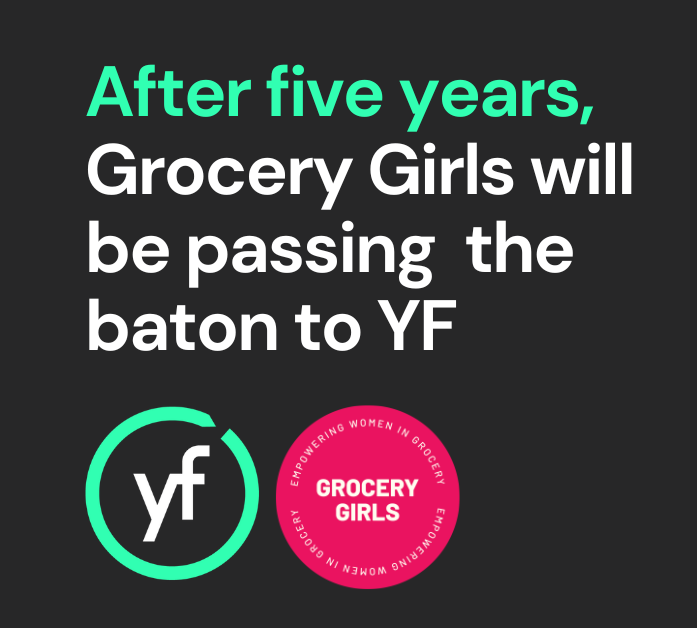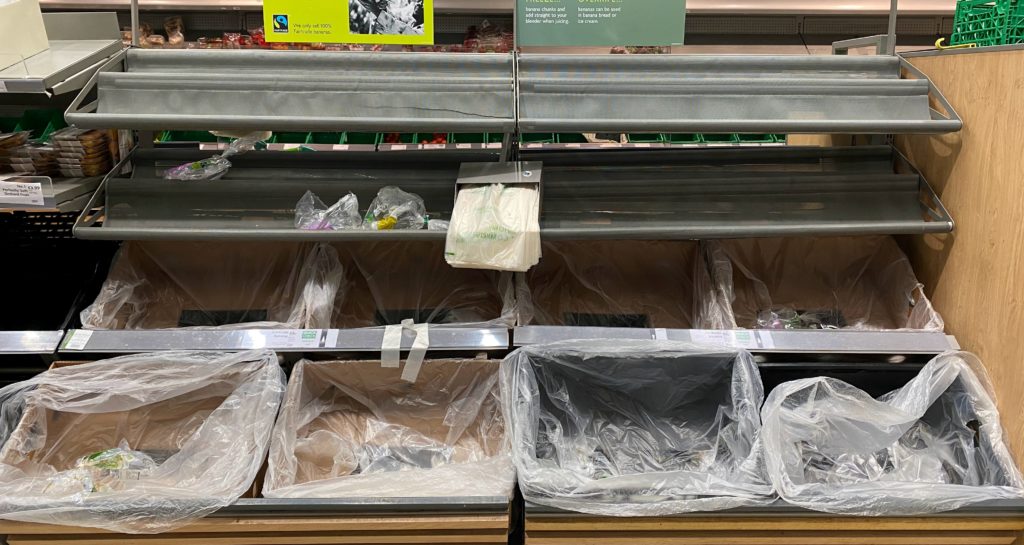
Subscribe to
YF mailing list
Subscribe today to keep informed of any important industry news and exclusive insights on how you can scale and strengthen your business.

The news that some of Britain’s biggest supermarkets were forced to introduce rationing on fresh produce made headlines around the world late last month.
Amid empty shelves Tesco limited purchases of tomatoes, peppers and cucumbers to three items per customer. Asda introduced the same on lettuce, salad bags, cauliflower and raspberries, whilst Morrisons, Aldi and Lidl also introduced similar restrictions.
The move was blamed on poor weather conditions, a temporary blip that would soon be resolved by the major mults and trade bodies.
But is that the whole story?
There is no doubt that extreme weather played a role in the shortages. However, are there more systemic supply chain issues at play here too?
Unsurprisingly, rising energy costs have been cited as a key contributor that has led farmers to reduce or delay planting crops. This is in addition to the rising costs of fuel, seeds, fertiliser and feed – with increases of between 100-400%, and, of course, the ongoing shortage in seasonal labour affecting the UK horticultural sector at large. Not to mention the UK’s exit from the single market.
So, as an FMCG SME, how can you protect yourself from factors, largely outside of your control? The simple answer: ensure you have the most resilient supply chain possible.
We spoke to Phil Peters, YFs Head of Supply Chain who has provided six pieces of advice when building a robust supply chain.
This is paramount. Some cost increases as a result of supply chain changes are inevitable, of course. But it is critical that SMEs secure the right deal with retail partners to ensure value is achieved for all stakeholders, and that they are also absorbing proportionate cost increases. This can be a tricky negotiation but it is necessary to ensure a ‘win-win’ for brands, retailers and end consumers.
Avoid relying on only one supplier for core ingredients. Instead build relationships with suppliers across a good geographical spread, with different transportation routes into the UK.
Ensure you are regularly checking in with key suppliers to understand as early as possible when they are anticipating disruption as a result of changing input costs or extreme weather events. Do not wait to hear about it on the news.
In addition, lean on the insights and knowledge from your network around you. Whether it is the YF Community or any other community you see fit, lean in and talk to people. We are lucky in FMCG – our industry is filled with genuinely friendly, down-to-earth people who may have insight around risks or challenges in the pipeline that you were unaware of.
Where strong supply chain relationships have identified the possibility of future disruption do not take a ‘wait and see’ approach. Understand from the outset what areas of the business will be impacted, what costs or complexities this could add and what potential solutions could there be.
Just as we saw in the run-up to Brexit, it can also be worth building inventory to act as a buffer against unforeseen events. This will not be a long-term solution – particularly with fresh produce – but it can buy you time.
This does not have to be a substantial outlay; the right supply chain software can streamline communications with suppliers, monitor even slight changes in cost and even identify weak spots in resilience.
Talk to us about how our partners at Unleashed might be able to help in this area.
Supply chain management remains a crucial factor for continued growth and success in a scaling business but taking steps to build a more resilient supply chain can feel like an overwhelming task.
Brands partner with YF to help build robust operations that can deliver on customer promises at scale. Our expert team can carry out a health check on your supply chain or even take over daily management, becoming an extension to your team.
Get in touch with our team to discuss your needs, and to understand how we can support you to successfully scale.
Would you like to be kept informed of any industry news, insights or updates about the YF Services? You can quickly subscribe to our newsletter here.
Subscribe to our mailing list to stay in touch with the latest news, insights and updates from YF.
Subscribe today to keep informed of any important industry news and exclusive insights on how you can scale and strengthen your business.
Our Preferred Suppliers are a selection of businesses that we have vetted and trust to recommend to our brands. We have negotiated discounts or deals with many of them.
Access to the list and discounts is a benefit to Community members only.
Not a member yet? Find out more here